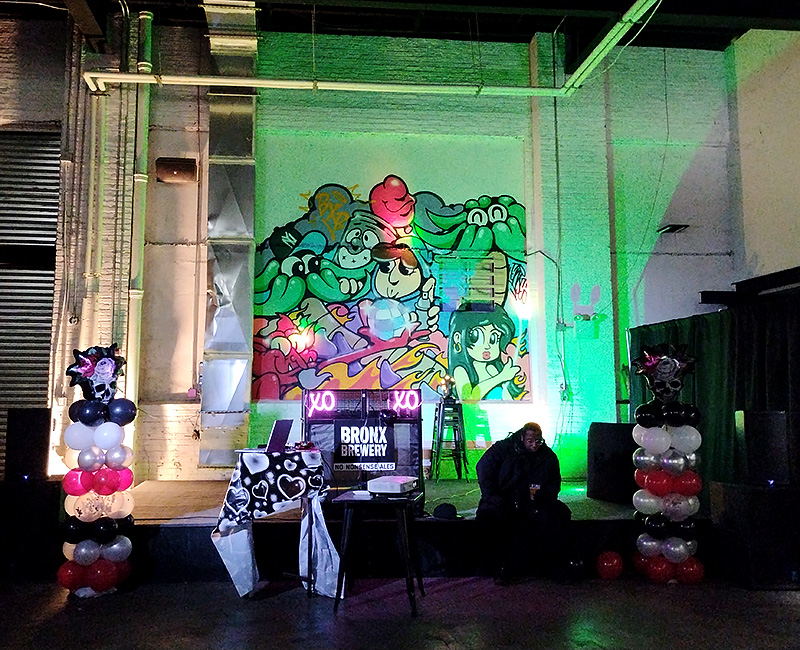48th Heritage of Pride Parade March on 5th Avenue at 17th Street in New York City on June 24, 2018 (Elvert Barnes)
By Samantha Haase
Stonewall, June 28, 1969. It’s a date that goes down in history as one of the most impactful and notable moments in the LGBTQ+ Liberation movement. It’s been 52 years since that fateful day in Greenwich Village, New York, at the Stonewall Inn, but Pride, for many, is still very much a protest.
Where colorful balloons and large crowds stand today, soundtracked by upbeat music and cheers, was the spot of riots and undercover cops in the 60s and 70s when gay marriage and relationships were deemed illegal. June was declared as Pride Month in 1999 by then President Bill Clinton as “Gay & Lesbian Pride Month”. In 2009, then President Barack Obama followed tradition and announced June as Pride Month during his entire term. An annual parade is held on June 27th or 28th, in honor of the first ever pride march in 1970. This year’s follows the theme of “The Fight Continues.”
Pride Month and Pride celebrations have attracted a slew of corporate brands. Not everyone is pleased and many accuse the companies of “Slacktivism,” or making a minimal effort in social justice and political issues.
Here’s how it works: a store, usually a retail giant, like H&M, Macy’s or otherwise, decorates and pushes their LGBTQ+ acceptance message. In the case of H&M, a Pride Month collection is usually advertised, donating a portion of the proceeds to a charity or organization of shoppers’ choice to support LGBTQ+ rights. That portion that is donated varies by company.
To promote the clothing lines, or to “support” the movement, many corporations debut their acceptance advertisements, telling people that while they support the movement, they should also buy their product.
And then, the month ends, only to be brought up again the following year, and the cycle repeats.
While some welcome the support from businesses, others think that it’s a step in the wrong direction and oversaturates the main idea of Pride Month.
According to a 2018 survey by Community Insights and Marketing, three quarters of Americans viewed a business more favorably and were more likely to give them business if they showed support.
“They only care about filling their pockets, like any good corporation,” said Tashima Lee, and openly lesbian college student. “Every little statement of theirs is just a ploy to seem more vulnerable and relatable so people can give them their money… at least Chick-fil-A is honest about their disdain.” Chick-fil-A, the fast food chain has a history of donating to anti-LGBTQ+ charities.
It’s irks many in the community, and has led to counter groups hosting their own pride celebrations. The most notable of them is Reclaim Pride NYC, a New York based LGBTQ+ rights group that hosts its own pride march, devoid of cops, barricades, and corporations.
“Overflowing with corporate floats and at the service of corporate money, the Pride Parade had become a new symbol of gay for pay,” says the Reclaim Pride NYC site. “The imposition of barricades along the parade route separated the participants from its audience, turning the Pride March into an entertainment venue instead of a true expression of our cultural legacy.”
Michael Johnson, an openly gay man from Long Island, has never attended a Pride event. Johnson, 28, doesn’t like the current way the event is handled. “If you are LGBTQ+, you do not go away after a certain calendar date, and I feel that the current way pride is acknowledged makes it seem like it’s just another holiday season,” he said. “To me, pride means just being comfortable and proud of who you are.”
Tashima Lee, 20, agrees. “For me, pride is the celebration of me seeing the light at the end of one of the longest and darkest tunnels I have ever been in.” Lee went to her first Pride March in 2017 with friends and was greatly moved by the experience.
“I still even have my first pride flag I bought from a vendor,” she said. “On my way home, I saw a het [tero] couple on the same bus as me wearing merch as well. They looked at me and told me they were so proud and I don’t think I’ve ever cried on the bus any harder than that.”
However, while the main criticism goes to companies who seemingly drop their support as soon as the sun sets on June 30th, there are companies who are consistent with their support for the LGBTQ+ community.
The Trevor Project is a well known organization dedicated to helping the LGBTQ+ community, and their corporate sponsor list spans from Macy’s to Sephora, Google and Hot Topic, who all regularly donate to the organization. Some companies, like the Lego brand, have come out in support of the community ahead of Pride Month. The company announced their new Pride edition Lego set just this month.
“The LEGO Group is committed to building a diverse and inclusive workplace. It partners with Workplace Pride, Stonewall and Open for Business to help shape strategies to support employees who identify as LGBTQIA+ and allies across the company.” The company said in a statement on Wednesday, May 19th.








No comments